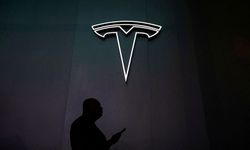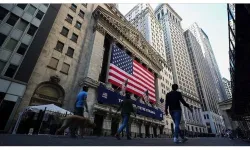The 'IEA Critical Minerals and Clean Energy Summit' in Paris, the first of its kind, brought together around 50 countries, including producers and consumers of critical minerals. The International Energy Agency said the "biggest challenge" facing countries is to ensure a more diverse supply and recycling of metals.
Elements such as lithium, nickel and cobalt are key for governments seeking to realize the "green transformation" as they are essential for producing electric vehicle batteries, solar panels and wind turbines.
The 'IEA Summit on Critical Minerals and Clean Energy' sought to address a growing challenge for countries: securing a reliable supply of minerals needed to keep society going.
Western Dependence on China
Rare Earths and other critical minerals are used in many high-tech devices, especially those needed for the transition to green energy, such as electric vehicles and wind turbines.
The International Energy Agency said the key challenge for countries is to ensure a more diverse supply of critical minerals and increase recycling. Western countries want to reduce dependence on China, which accounts for almost 70% of production and has the largest refining capacity.
Global demand for the four most widely used critical minerals is said to grow to forty times lithium reserves, twenty times for cobalt and nickel and three times the amount of copper over the next 17 years.
The market for energy conversion minerals has become increasingly prominent for the global mining sector, reaching US$320 billion in 2022.
One of the most pressing concerns for Western countries is to break away from dependence on China, which dominates the refining of critical minerals and processes 67% of the world's cobalt, 62% of lithium, 60% of manganese and 32% of nickel.
A recurring theme throughout the IEA Summit was that no single country can solve the demand for critical minerals. US Energy Secretary Jennifer Granholm warned that a transition away from fossil fuels would make energy security "infinitely more complex" because of China's dominance over the processing of critical minerals needed for renewable energy.
Diversification is Key
Western countries hope to source metals from so-called responsible countries and recycle metals found in disused electric car batteries and wind turbines. In March 2023, for example, the EU announced plans to invest €50 million ($54 million) in mining projects in the Democratic Republic of Congo.
France is using its nuclear know-how to extract rare earths from atomic fuel at the Alternative Energy Commission center in Grenoble.
Japan and the United States have already moved to diversify their rare earth resources. The US Department of Energy and Department of Defense have provided billions of dollars in subsidies to accelerate the establishment of mines and processing plants domestically.
China's Poor Quality Supply
With new mining facilities taking 7 to 20 years to become operational, the European Union is racing against time to secure new resources. "We have not forgotten how China's unfair trade practices have affected our solar sector," European Commission President Ursula von der Leyen said in her State of the Union speech on September 13, criticizing China for its market dominance.
Leyen said global markets are now "flooded" with cheaper Chinese electric cars, whose prices are kept "artificially low" by government subsidies.
The IEA said the world was "on the verge of a historic turning point" with demand for coal, oil and gas rising before 2030. It has also created a new Energy Security and Critical Minerals Division within its Secretariat.
The world's need for lithium, 70 percent of which is in China, will increase 40-fold in 15 years!
The International Energy Agency (IEA), which hosted a summit on critical minerals in Paris on September 29, said the world will need 40 times more lithium by 2040, which is needed to meet electric transportation targets.
Editor: Albert Owen
Trending news

Snoop Dogg to carry the Olympic torch

Lily James Expresses Admiration for Hailey Bieber’s Rhode Skincare Line

Taylor Tomlinson Will Explore Her Faith and Sexuality on Tour!

'Alien mummy' in Peru raises eyebrows

Scandal in the heart of Europe: Child abuse in a church!

Kamala Harris’ Running Mate: Here’s Who Could Be Her VP After Biden Drops Out And Endorses Her









